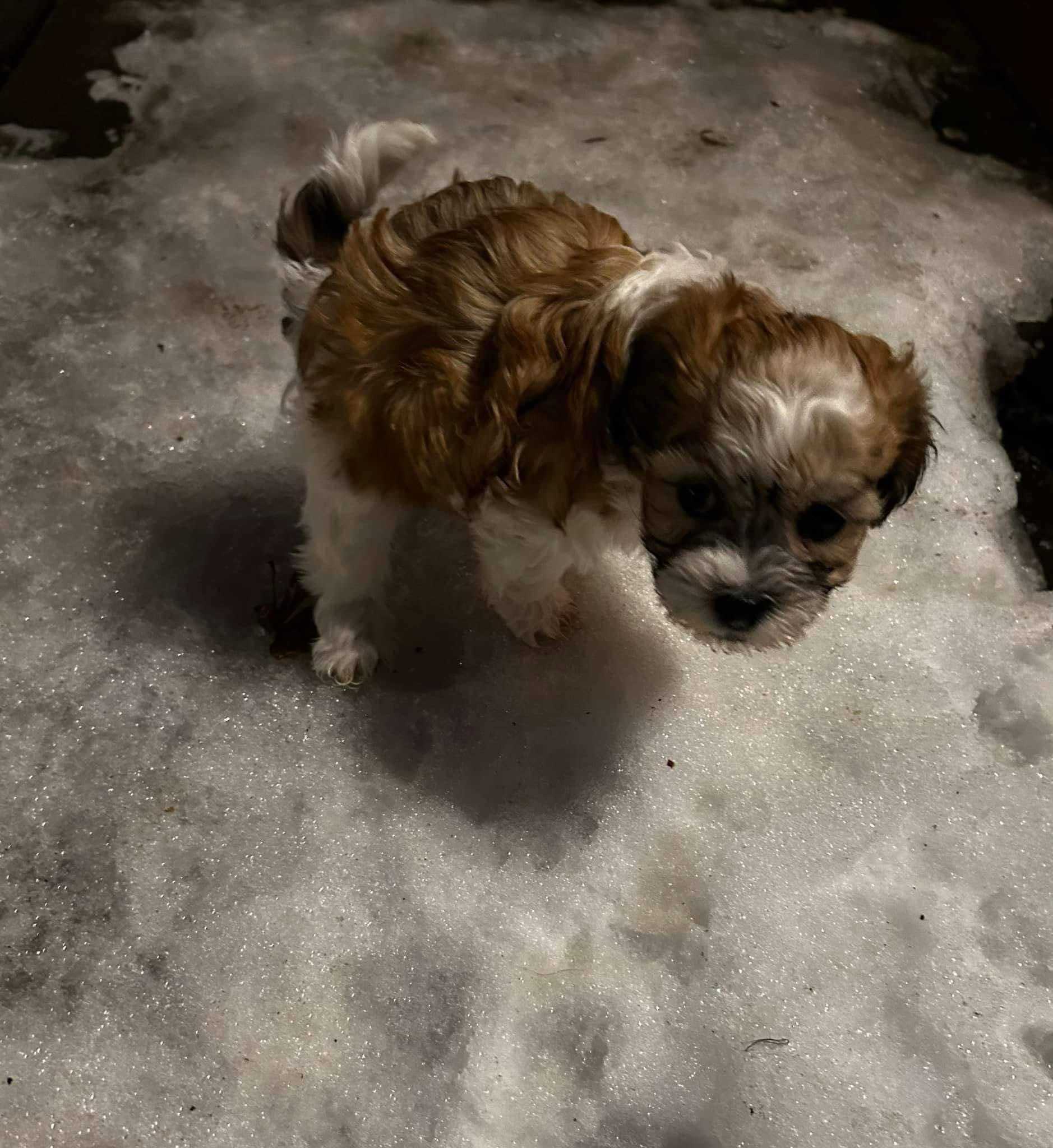Potty Training
Potty training your puppy
When you first bring your puppy home, it’s important to remember that their bladder is not fully developed, and they will need frequent potty breaks. While I help get puppies off to a good start in the housebreaking process by introducing potty trays at 2 to 3 weeks of age and beginning outdoor potty breaks at around 6 weeks, they will still be far from fully house-trained when you bring them home. Although they may understand how to use a potty tray, I recommend not relying on them when you first get your puppy. Bringing them outdoors for their potty breaks from day one helps establish a clear routine and prevents confusion as they transition to life with you.
At first, your puppy may also need to go potty during the night. Some puppies may sleep through the night from day one, but for others, it might take a couple of weeks to adjust. If you need to take your puppy out at night, do so with minimal interaction—just take them out to go potty and then immediately return them to their crate. Don’t play with them or even make eye contact; they need to learn that it’s your schedule they need to adjust to, not the other way around.
If your puppy cries when you put them back in their crate, it’s okay to let them cry for a bit as long as you’re confident their basic needs are met. If the whining becomes overwhelming and disrupts your sleep, you can provide a chew toy in the crate after their early morning potty break, but only if necessary. Chewing or licking can sometimes help calm them back to sleep, though I wouldn’t recommend this as a regular solution as they may come to depend on it.
When and how often to take them out:
During the early stages of housebreaking, it’s critical to take your puppy outside to potty immediately after waking up, after playtime, and after meals. Watch for signs that your puppy needs to go, such as sniffing, circling, or heading toward the door. At first, it’s a good idea to take your puppy outside every 60 minutes or so to build a routine. As you get to know your puppy’s schedule, you’ll be able to adjust these breaks accordingly.
Keeping meal times consistent also helps regulate their bathroom schedule. Remember, the time and effort you put in at the start will pay off with a house-trained puppy!
To minimize accidents in the early days, you’ll need a crate or ex-pen to keep your puppy contained when you can’t supervise them. If you have to leave your puppy alone for an extended period, place a potty pad in the ex-pen. Alternatively, you can block off a carpet-free area of your home, such as the kitchen.
When your puppy successfully goes potty outdoors, praise them enthusiastically and reward them with a high-value treat (like meat, cheese, or their favorite snack). The more exciting and rewarding the experience, the more eager they’ll be to go potty outside! I also recommend adding a verbal cue like “Go potty” or “Hurry up” during each potty break so they begin to associate the phrase with the action.
If you catch your puppy in the act of going potty indoors, use a firm but gentle “no” and quickly take them outside to show them where you want them to go. Never shout at or physically punish your puppy for an indoor accident, as this can make them afraid to potty in front of you—indoors or outdoors. If they do have an accident, be sure to clean it thoroughly with an enzyme-based urine odor remover to eliminate any scent and prevent them from returning to the same spot.
Don't make this common mistake!
One of the biggest mistakes puppy owners make is giving their puppy too much freedom too soon. Do not allow your puppy free access to the entire house until they are fully housebroken. Some puppies may be housebroken by 6 months, but others might take closer to a year. If your puppy begins to have accidents in certain areas of the house, it can be very difficult to break this habit once it’s established. Prevention is key, so avoid giving them too much space until you’re confident they have mastered the housebreaking process.
It’s also important to remember that puppies don’t become fully housebroken overnight. If you think your puppy is housebroken but then experience a setback, simply take a step back and return to the previous steps. With consistency, patience, and positive reinforcement, your puppy will learn the appropriate places to go potty, and your hard work will pay off.
